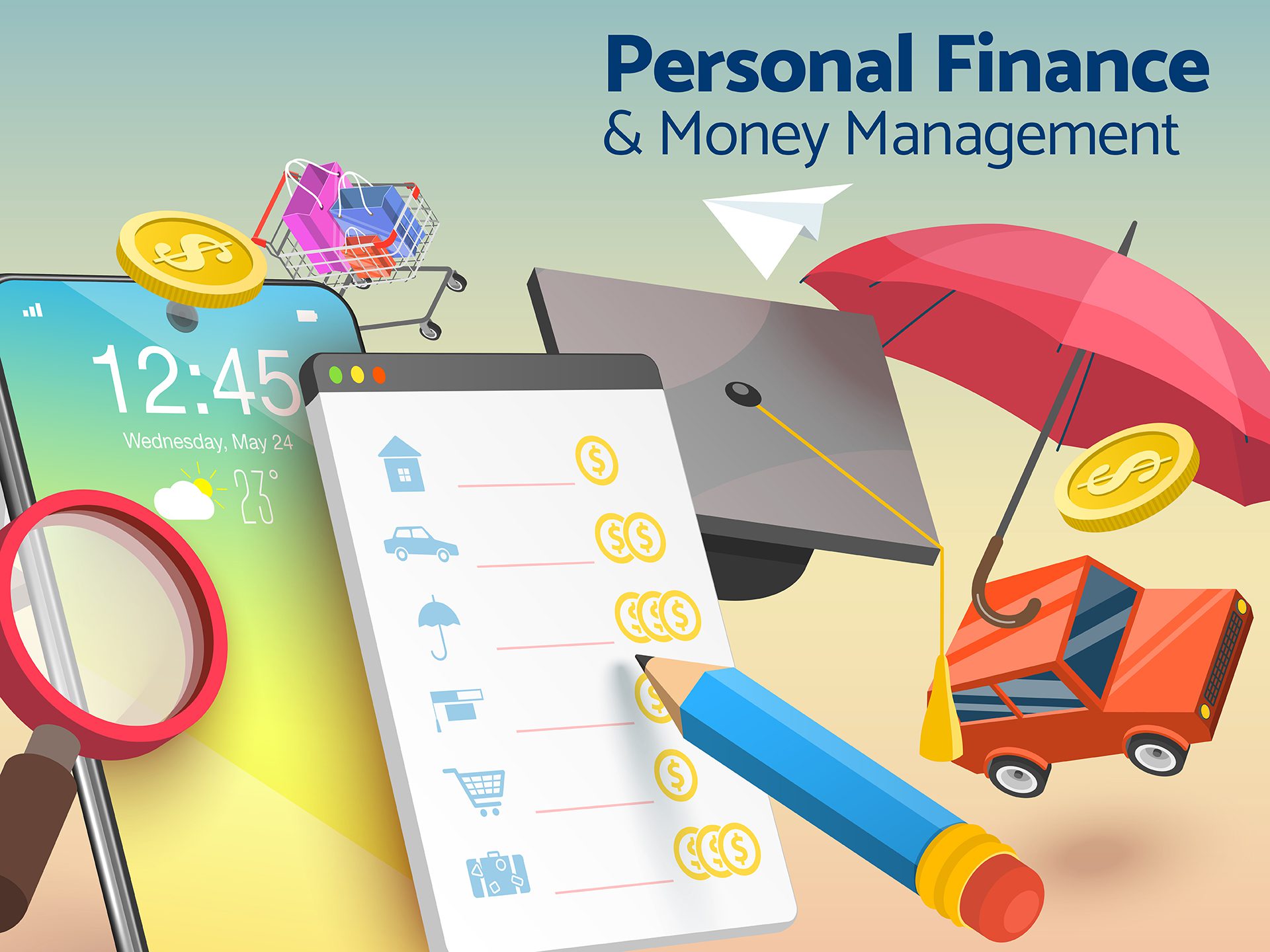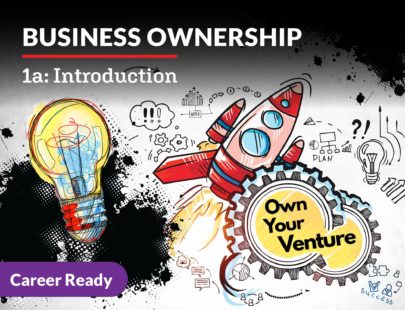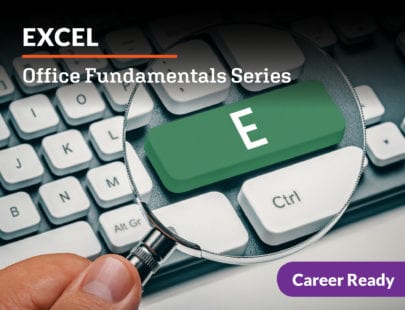
Personal Finance and Money Management
Thinking about your adult life and planning for your future is exciting. You will likely need to work for your money, but you can also make your money to work for you. Build a strong financial future starting now by learning how to evaluate your spending habits, create a budget, establish good credit, and save and invest. Reaching your life goals will be much easier when you really understand how money works and having a solid financial plan to reach them.
Units at a Glance
Unit 1: Establishing a Financial Foundation
Financial planning involves assessing the money you earn, which sounds pretty straightforward, right? You get a job and presto, you’ve got money! But did you know that there will be deductions coming out of your paycheck? Or that there’s a difference between an hourly rate and a salary? Understanding what those deductions are and how your payments are calculated is key to knowing how much money you will actually take home. It’s also important to think about the type of work you’ll be doing—whether you work a traditional job or in the gig economy will shape your access to health insurance and retirement benefits. You’ll also need to decide how to manage the money you earn, and choose a financial institution with services that meet your access and saving needs. All of these factors are important considerations as you think about developing your career and looking for the job that’s right for you.
Unit 2: Budgeting Basics and Money Management
There is more to managing your money than just getting paid. You need to be sure that you are paying attention to how you are spending it. Creating a budget lets you define where your money goes, identify your spending patterns, and set goals. Tracking spending and savings is how you see progress, and that is how you meet your goals—both short and long term. Another part of money management is making sure that those bills get paid and resolving any problems that come up in the process.
Unit 3: Decoding Spending Habits
Have you ever thought about why you choose to buy the items you do when you go shopping? If you have not, advertisers certainly have. The good news is that once you know their strategies, they are pretty easy to spot, and that can make you a savvier consumer. Avoiding overspending is another important step in building a solid financial future, so how you pay matters.
Unit 4: Understanding Loans
Loans can be a great tool to help you reach your goals. Whether that is a post-secondary degree, a new car, or a nice house, borrowing money can make these more accessible. On the other hand, too much debt can lead to bankruptcy and set you up for a life of financial challenges. So how do you get it right? The first step is making sure that you understand how loans work and their terms. There are often a lot of options, so the better you understand the structure of a loan, the easier it is to get the one that is right for you. The next step is to pay it back. Having a plan for that can keep you on track to keep your credit score high and that loan balance coming down.
Unit 5: Credit and Consequences
A lot goes into properly managing your credit, and part of that is understanding how credit—particularly credit cards—works. Credit cards can be a great tool for building your credit score and accessing goods you want, but they also can be a pathway to a lot of debt quickly, so proper use is key. There are also a lot of ways in which fees and interest can add up, so you need to fully understand the cost of the deal you are making when you sign that credit card agreement. Using credit cards wisely also includes attention to online safety since identity theft is common. There are steps you can take to minimize your risk, and resources to help if you become a victim. But identity theft can do more than mess up your credit—it could hinder your ability to get a job. This is why you need to monitor your credit report carefully.
Unit 6: Raising Your Investment IQ
If you had a little extra money, what would you do with it? Investing is a great way to grow your money, and there are investments for every budget. Whether you want to dive into the stock market or make the most of what your local bank has to offer, there are ways to increase your money. Of course, all investments come with risk, so part of investing is considering how likely you are to lose the money you have designated.
Unit 7: The Government and Your Wallet
Tax time does not just come once a year. There are many ways in which we all contribute to the financial well-being of this country. Taxation provides services at all levels of government, so it is important to know when, how, and how much you need to pay. Paying those taxes also contributes to federal organizations that regulate and monitor our economy. While that might not seem to have much to do with our daily lives, the financial stability they provide is integral to a functioning society. The government is also looking out for the individual consumers, making sure that they have the information they need to manage their financial affairs.
Unit 8: Insurance: Protecting What Matters
Insurance plays an important role in your financial future since its purpose is to safeguard you when the worst happens. Even a small car accident can break your budget, and insurance is what keeps the cost manageable. There is a lot to learn about terms of insurance and what it does and does not cover. Getting the right policy for your circumstances requires understanding all of the elements of a policy and what you will have to pay in the end.



